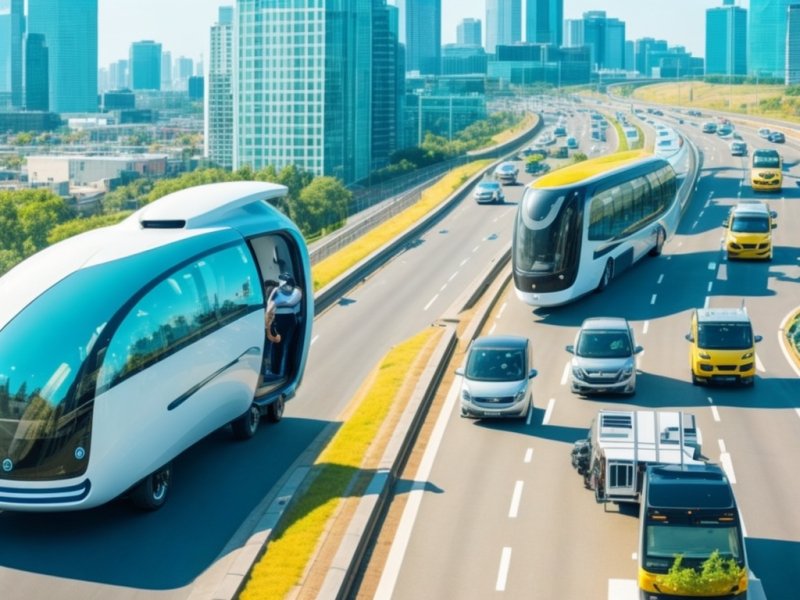
In the fast-paced and ever-evolving world, the future of transportation holds exciting prospects. Technology is driving unprecedented changes in the way we move, revolutionizing mobility as we know it. From eco-friendly innovations to autonomous vehicles and smart infrastructure, the transportation landscape is on the brink of a remarkable transformation. In this blog, we delve into the role of technology in shaping the future of transportation and the numerous benefits it promises to bring.
One of the most significant advancements in transportation is the widespread adoption of electric vehicles (EVs). As concerns about climate change and dwindling fossil fuels escalate, EVs offer a greener and more sustainable alternative to conventional vehicles. With rapid advancements in battery technology, EVs are becoming more affordable, offering longer ranges, and charging infrastructure is expanding. As a result, the future of transportation is set to witness a massive shift towards emission-free driving, reducing our carbon footprint and combating air pollution.
The dawn of autonomous vehicles has long been anticipated, and it is now becoming a reality. AVs are equipped with advanced sensors, artificial intelligence, and machine learning algorithms, allowing them to navigate roads without human intervention. The potential impact of AVs on transportation is immense, with improved safety, reduced traffic congestion, and increased efficiency being the key benefits. As AV technology continues to mature, we can expect a significant transformation in urban mobility and long-distance travel.
Mobility-as-a-Service (MaaS) is a groundbreaking concept that integrates various transportation services into a single platform. Through smartphone applications, users can access and combine public transport, ridesharing, bike-sharing, and more, streamlining their travel experience. MaaS not only offers convenience to passengers but also helps optimize transportation networks, leading to reduced travel costs and better resource utilization. This seamless integration of transportation services is expected to revolutionize how people commute and travel in cities.
Technology is not only transforming vehicles but also the infrastructure they operate on. Smart infrastructure, equipped with Internet of Things (IoT) sensors, can monitor traffic flow, identify congestion points, and optimize transportation networks in real-time. Additionally, connectivity between vehicles and infrastructure enables efficient data exchange, leading to improved safety, traffic management, and reduced travel times. The future of transportation will see cities embracing smart infrastructure to create more sustainable and commuter-friendly environments.
Looking even further ahead, futuristic transportation concepts like Hyperloop are set to redefine long-distance travel. Hyperloop is a high-speed transportation system that uses magnetic levitation to propel passenger pods through low-pressure tubes at astonishing speeds. With the potential to revolutionize intercity and even international travel, Hyperloop promises to reduce travel times significantly and make distant places more accessible than ever before.
As technology continues to evolve, the future of transportation is brimming with promise. From electric vehicles and autonomous driving to Mobility-as-a-Service and smart infrastructure, every aspect of mobility is undergoing a radical transformation. Embracing these innovations will not only enhance our daily commutes but also contribute to a greener and more sustainable planet. The transportation revolution is on the horizon, and by harnessing the power of technology, we are on the cusp of experiencing a mobility revolution like never before. So, fasten your seatbelts and get ready to embrace the exciting future of transportation!
Share This News